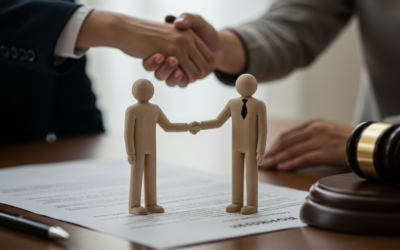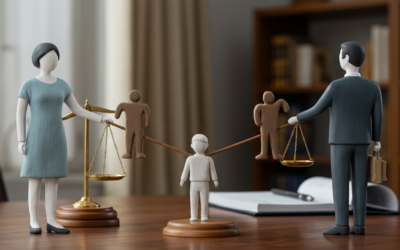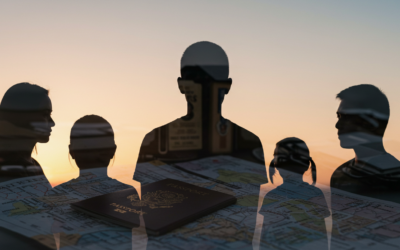As our bodies age, we become more susceptible to falls. A minor misstep can cause a serious injury, especially if we land awkwardly or on a hard surface. If you’ve been involved in a slip, trip, and fall accident, there are certain things you should do to protect your health and your legal rights.
Unfortunately, many people don’t know what steps to take after an accident. This can lead to further injuries and difficulty filing a claim. In this blog post, we’ll outline the steps you need to take after a slip, trip, and fall accident. We’ll also provide some tips on how to maximize your claim payout. Let’s get started.
What constitutes a slip, trip, and fall accident?
In judicial terms, a slip, trip, and fall accident are covered by personal injury law. This type of accident can occur anywhere – on the sidewalk, in a grocery store, at work, or even in your own home.
There are three main types of slip, trip, and fall accidents:
- Slips occur when too much polish, wax, soap, or water is on the floor. This can cause you to lose your footing and take a spill.
- Trips happen when you catch your foot on an uneven surface, an object in your path, or something protruding from the ground.
- Falls are more general and can occur due to any number of factors – a slippery or uneven surface, a trip hazard, or simply losing your balance.
Generally speaking, any fall that results in an injury can be classified as a slip, trip, and fall accident.
When should you sue a property owner for damages?
Picture the scene. As you walk through your usual hardware store, you take a misstep on a loose board and come crashing down to the ground. You suffer a serious injury as a result of the fall, and you want to know if you can sue the store owner for damages.
The answer is: maybe. Whether or not you can successfully sue a property owner for your injuries depends on several factors. Let’s take a look at some of the key considerations:
Knowledge of the hazard
If the property owner knew about the hazard and did nothing to fix it or warn visitors, they may be liable for your injuries. For example, if a grocery store knows their floor is slippery but doesn’t put up a wet floor sign, they could be held responsible if someone slips and falls.
Unkept property
If a property is in disrepair, the owner may be held liable for any accidents that occur as a result. For example, an old building with crumbling stairs could be considered an accident waiting to happen. The property owner would likely be held responsible if someone was injured in a fall.
Inattention to visitors
There are certain types of properties where the owner has a duty of care to visitors. This includes public places like pools and playgrounds and private businesses open to the public – like restaurants, hotels, and stores.
If property owners fail to take reasonable care of their visitors, they could be held liable for any accidents.
How to prove the property owner is at fault
In order to successfully sue a property owner, you’ll need to prove that they were at fault for your accident. Camera evidence is undoubtedly the best way to do this, but it’s not always possible to have a video of the accident.
In these cases, eyewitness testimony can be beneficial. If someone saw the accident happen and can attest to the property owner’s negligence, that may be enough to prove your case.
Accident reports are also helpful in proving fault. If you filed a statement with the first responders, EMT, or another authority immediately after the accident, that would likely contain valuable information about how the accident occurred.
The report includes any pictures of the accident scene, including the hazards that caused you to slip, trip, and fall. Other documentation that can help prove your case would be medical records and bills and any lost wages if you had to miss work due to your injuries.
When is the court likely to favor the plaintiff?
For a plaintiff to win a slip, trip, and fall case, they must prove that the property owner was negligent.
There are a few key factors that courts will consider when determining negligence:
- The type of property involved
- The condition of the property
- The amount of time the hazard existed
- The plaintiff’s effort to avoid the hazard
- The plaintiff’s injuries
In determining whether or not the property owner was negligent, courts will often ask if a reasonable person in the same situation would have taken measures to prevent the accident.
Shared liability is also possible in some states. For example, if someone gets hurt after hitting their head on a low-hanging beam in a dark parking garage, the court may find that both the property owner and the plaintiff are at fault.
What kind of compensation can you get?
If you win your case, the property owner may be required to pay for your medical bills, lost wages, and pain and suffering. In some cases, punitive damages may also be awarded if the court finds that the property owner was especially negligent.
Before filing a lawsuit, it’s essential to speak with an experienced personal injury attorney. They can help you understand the strength of your case and what kind of compensation you may be entitled to.
Another good reason to hire a lawyer is that they can help you navigate the legal system. Filing a lawsuit can be a complicated process, and having an experienced professional on your side can make it much more manageable. Depending on the case, they may even be able to represent you in court, so you don’t have to go.
Contact a Wisconsin personal injury lawyer today
If you’ve been injured in a slip, trip, and fall accident, don’t hesitate to reach out to a personal injury attorney today. The longer you wait, the more difficult it may be to prove your case.
At Vanden Heuvel & Dineen, we have over 40 years of experience handling personal injury cases. We know how to find the evidence you need to prove your case and get the compensation you deserve.




